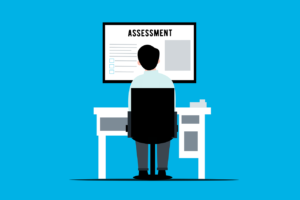DIAGNOSIS VIDEO:
In diagnosing dementia, the more you know, the better.
With over 100 types of dementia, your doctor needs your help. So learn the signs. Start with this video on the basics of diagnosing dementia.
SOURCE:
DIAGNOSIS VIDEO:
In diagnosing dementia, the more you know, the better.
With over 100 types of dementia, your doctor needs your help. So learn the signs. Start with this video on the basics of diagnosing dementia.






This site was inspired by my Mom’s autoimmune dementia.
It is a place where we separate out the wheat from the chafe, the important articles & videos from each week’s river of news. Google gets a new post on Alzheimer’s or dementia every 7 minutes. That can overwhelm anyone looking for help. This site filters out, focuses on and offers only the best information. it has helped hundreds of thousands of people since it debuted in 2007. Thanks to our many subscribers for your supportive feedback.
The site is dedicated to all those preserving the dignity of the community of people living with dementia.
Peter Berger, Editor
Share this page To

CLR01, a “molecular tweezer”, keeps brain proteins from the clumping, or aggregating, that causes Alzheimer’s, Parkinson’s and Huntington’s dementia. Find out why CLR01 has strong potential as a new treatment.

EMERGENCY BAG CHECKLIST: People with Alzheimer’s need to be prepared for an emergency. Simple planning now will make future hospital trips a lot less stressful.

This quick, effective 3 to 5 minute dementia test produces results comparable to “gold standard” dementia tests used by clinicians.

POLICE DASH CAM VIDEO + ARTICLE:
See a man with Alzheimer’s driving 60 MPH (100kph) at police, against traffic, on New Year’s. Learn how-and-when to help a person with Alzheimer’s hand in the car keys.
Visit Alzheimer's Weekly On
Alzheimer’s & Dementia Weekly was inspired by my mother’s journey with autoimmune dementia and my dad’s with Parkinson’s dementia.
Walking beside them opened my eyes to the confusion, the courage, and the deep humanity found in families and professionals caring for someone they love.
Since its debut in 2007, this site has had one clear mission:
to separate the wheat from the chaff — to highlight only the most essential articles, studies, tools, and videos from the overwhelming river of dementia-related information.
(At last count, Google receives a new post on Alzheimer’s or dementia every seven minutes.) For anyone seeking clarity or support, that constant flow can be exhausting and discouraging.
Alzheimer’s Weekly filters, translates, and explains what matters most, helping hundreds of thousands of families, clinicians, and care teams around the world make sense of the latest research and best practices.
This site is dedicated to everyone who works—often quietly and tirelessly—to preserve dignity in the community of people living with dementia.
With experience in dementia caregiving, public education, and Alzheimer’s-focused writing—and a professional research background shaped in what many consider one of the world’s top laboratories—I work to make complex findings clear, practical, and genuinely helpful for both families and professionals providing care.
My goal is simple:
Translate the best science into guidance that lightens the load, strengthens understanding, and helps every person with dementia live with dignity.
Peter Berger
Editor, Alzheimer’s Weekly
dear Josee – sadly its not just a case of "go a bit dotty" there are very real issues of safety and quality of life not just for the person concerned but also those who love and are subject to horrendous consequences of undiagnosed gone a bit dotty – I agree with your concerns about misdiagnosis and other causes of presenting issues – over the last few months I have witnessed first hand the very alarming effects on both body and mind of D3 overdosage – but that has occurred as a result of "a bit dotty" not being appropriately identified and thus the concerned at liberty to confusedly self poison
Why was the Vitamin B stopped? Pernicious Anemia ?
How very sad that one cannot simply go a bit dotty any more! This is a very very convenient catchall diagnosis. there are several blindspots, I have found in medics where a diagnosis of Altzheimers would be a sentence of a slow and agonising death for the patient. My mother, a victim of a particularly rare form of Pernicious Anemia was told by a doctor here that she certainly did not need the three weekly injections (they were meant to last a year in the more 'normal' PA patients) as the human body absorbs Vitamin B!@ in a normal diet. Her rapidly increasing lack of mental capacity and paralysis was owed entirely to the cessation of the injections when my father died and I was away from home. Her doctor in England was horrified. If the lack of knowledge of that local doctor is anything to go by them thousands if not millions will be mis- diagnosed as having Altzheimers.. although it is known even otherwise fit people tend towards a less rare form of Pernicious Anemia as they age. my mother, of course died within two months ..her father took rather longer as even in early 20th century England the doctors knew of the disease but had no cure until very late in the 20th century. If this is true of P.A. then it also true of other diseases.. and all avenues of diagnosis and treatment for the latest fad disease should be looked at